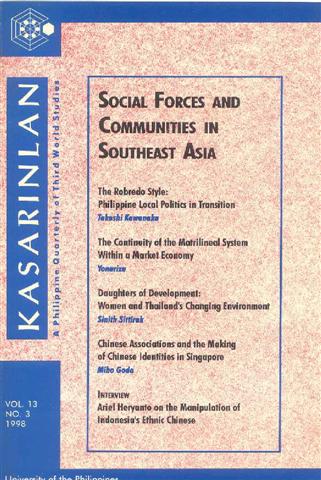The Robredo Style: Philippine Local Politics in Transition
Abstract
Politics in the Philippines has been a matter of patronage. The political elite solicits the support of the relatively powerful who draw strength from the individually powerless voters for assistance. In retum, the former will reward the latter with the fruits of influence and whatever else that was agreed upon. This relationship of patronage is renewed during elections and is understood as the way the political system worked until the late President Ferdinand Marcos declared Martial Law and did away with patronage politics. In its place came a more unilateral relationship which voided contracts with traditional power brokers. The Aquino administration facilitated the retum of patronage politics but at the same time introduced a new breed of leaders. One such politician is Naga City Mayor Jesse Robredo. Robredo consolidated popular support without the aid of mutually rewarding ties, a strong political machine or a monopoly of power. The manner in which he secured the maximum term of office and improved the lives of his constituents sets a new standard in governance. The author calls it the Robredo Style.
Published
2007-10-17
How to Cite
KAWANAKA, Takeshi.
The Robredo Style: Philippine Local Politics in Transition.
Kasarinlan: Philippine Journal of Third World Studies, [S.l.], v. 13, n. 3, p. 05-36, oct. 2007.
ISSN 2012-080X.
Available at: <https://journals.upd.edu.ph/index.php/kasarinlan/article/view/351>. Date accessed: 29 aug. 2025.
Section
Features
By submitting a manuscript, the authors agree that the exclusive rights to reproduce and distribute the article have been given to the Third World Studies Center.



